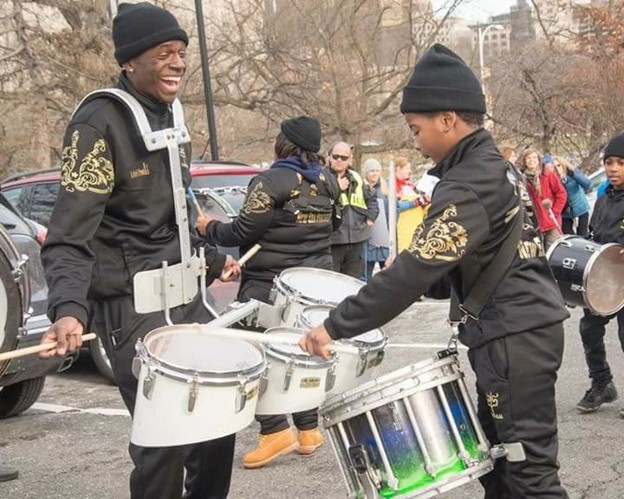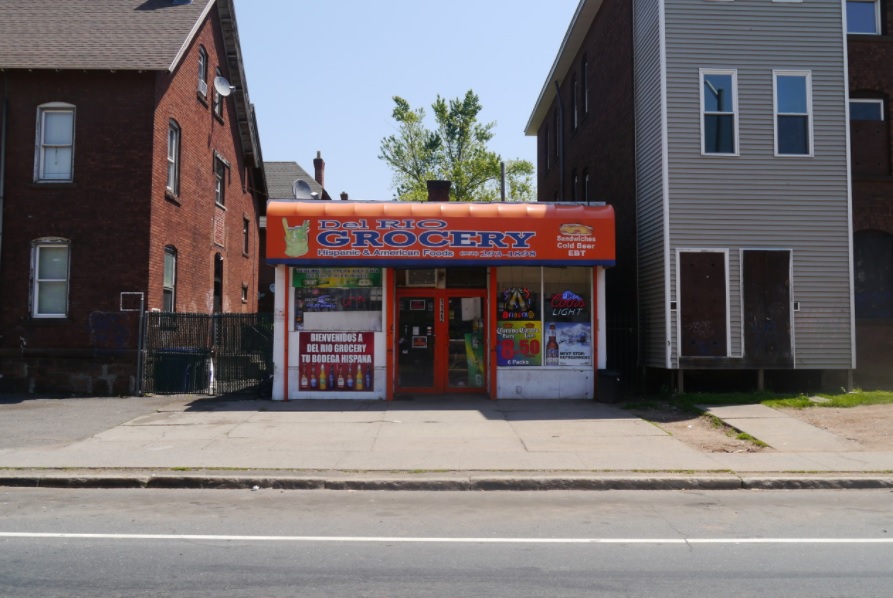Interview with a Community Action Task Force Advisory Coordinator
April 2021
HFPP: Where are you from? What are the strengths of your community that bring you pride?
Community Advisory Coordinator: “Although I wasn’t raised in Hartford, CT, I was born here, and I live here now. There’s a lot of Hartford pride. We feel like this is where the action happens in Connecticut. There’s a drum line and dance troupe. They go all over the country and they love to share about Hartford, and what we do here. We also have a really thriving arts community. There is a lot of creativity that comes out of the city, and I’m excited for the day when we start to really shine.

“Another thing is there’s a lot of community ownership. People get involved and they want to help their neighbors. For example, there’s the Angel of Edgewood, a lady who has taken it upon herself to hand out food to her neighbors and make sure that people have food to eat. I used to live on Vineland Terrace, and there was another lady doing a very similar thing. Every Wednesday morning, she was handing out food to people and the line would wrap around the corner.
“I also work in Hartford. I am the Community Action Task Force Advisory Coordinator for the Healthy Hartford Hub, a project that is planned for downtown North Hartford that includes a grocery store, health promoting services like clinics and a fitness center, and small and Black-owned businesses that support entrepreneurship. I coordinate meetings and work with other community organizations. I am also very deeply involved with community members and making sure that the community’s voice is heard.”
HFPP: What is it like accessing healthy food in your community? Has the COVID-19 pandemic changed the way you and your community access food? If so, how?
Community Advisory Coordinator: “There’s no grocery store in Hartford. That’s the first problem. There is one that’s right on the city line, but it’s far for most people. People have to take the bus, a ride-share service, or they’re accessing the grocery store by walking. And it’s just not feasible for most folks to go to a grocery store all the way across town. A market study conducted a few years ago identified a space in downtown, North Hartford that was much more accessible by bus or on foot. There has not been a grocery store operator identified yet. We’ve recently changed the exact parcel of land for the project, and now it’s bigger, so hopefully we’ll get someone to sign on and be our operator soon. We really want people to believe that it’s their grocery store.

“Another thing is that there is healthy food here, but you do have to search really hard to find it, especially if you don’t have a car. I think around 40 percent of North Hartford residents do not have vehicles. Because of that, there’s just not that many options. Every once in a while, you might find a bodega that has a ton of fresh food, but it’s not in every neighborhood. Most of them are just soda, candy, chips and stuff like that. I do think it is difficult, especially if you live in one of the areas where there just isn’t a really good bodega.
“With the COVID-19 pandemic, people aren’t really going to the grocery store as much. They either use Instacart or get Gopuff. Gopuff is like Instacart; you can get little grocery type items, just like you can get at the bodega. And people are using food delivery services like DoorDash to get other kinds of foods. I almost feel like the amount of fast food that people are consuming has increased, because it’s easier to get fast food now, because you don’t have to leave your house. And this is probably the worst time to do that because we need to stay healthy.”
HFPP: In your work on giving the community voice and engaging with residents that want to do this work, what are some lessons learned?
Community Advisory Coordinator: “One thing that I’ve noticed that’s effective is going to schools, parenting groups, senior citizens centers, gyms; places where people already are. I feel like you can get better community ownership because people are up and out, and they are doing things. It’s these places where people are investing their time, resources, where they’re sending their children, where they’re looking for parenting groups, that’s when you’re going to get real ownership because these people care. I find it easier to engage in these settings as opposed to door knocking, passing out flyers, and even social media. I feel like those methods are super hit or miss.
But when you go where people are already showing that they care about something, especially if it has to do with your project, I feel like I’m always way more effective there.
HFPP: In reading the Healthy Food Policy Project’s definition and working principles, what are one or two things that resonated with you?
Community Advisory Coordinator: “What I really liked was the piece about building trust and establishing long-term relationships with community. When I read the word tokenization in the chart included with the working principles, I wondered, “What’s this about?” We have these meetings that the Community Action Task Force Advisory members are not a part of, and frequently I feel like my role is to go back to the group and disseminate information, as opposed to having the group be a part of the decision-making process.
“I have to go back to them and say, “Oh, this is what we’re going to do.” As a Black woman working in community, there’s this attitude of, go get, learn what they want, and then come back and tell us. It doesn’t feel good. It doesn’t really feel like the community’s owning it. It feels like we’re still an organization-led community advisory board. It would make a big difference if the project deferred to community ownership.
“What if the organizations that are currently leading this project took a step back and let community members own the project and be the experts? The organizations would still have a role, as a sounding board and giving residents assistance when we need it; if we need to file grant paperwork, for example. This definition makes me feel like we have the opportunity to do something completely different.
This definition makes me feel like we have the opportunity to do something completely different.
HFPP: What’s one word or phrase that you’d use to describe the impact of your work?
Community Advisory Coordinator: “Inspiring advocacy.
“The reason why I got involved is that a few years ago, I was a divorced mom of two little girls taking the bus or walking to the grocery store and spending way too much money at the bodega. I wish the Healthy Hartford Hub was available to me. I know it will have a huge impact, but I can’t expect people to be involved in things that they: 1) don’t know about; and 2) don’t understand that they have the ability to have a say in. I am here to give the community voice.”


